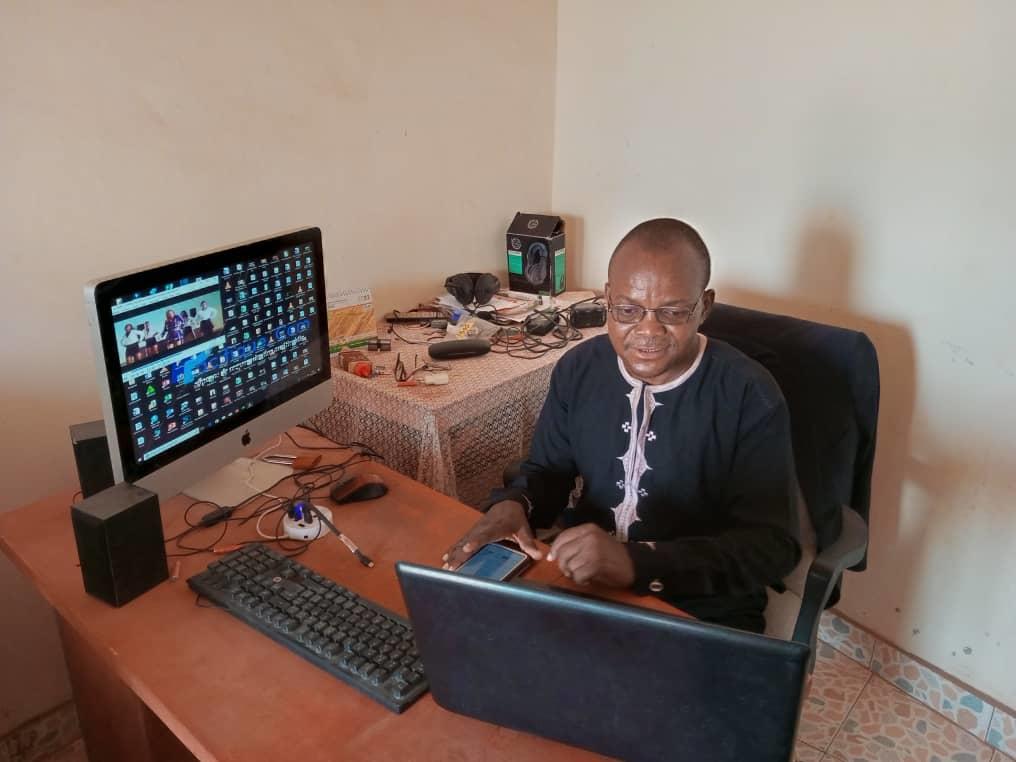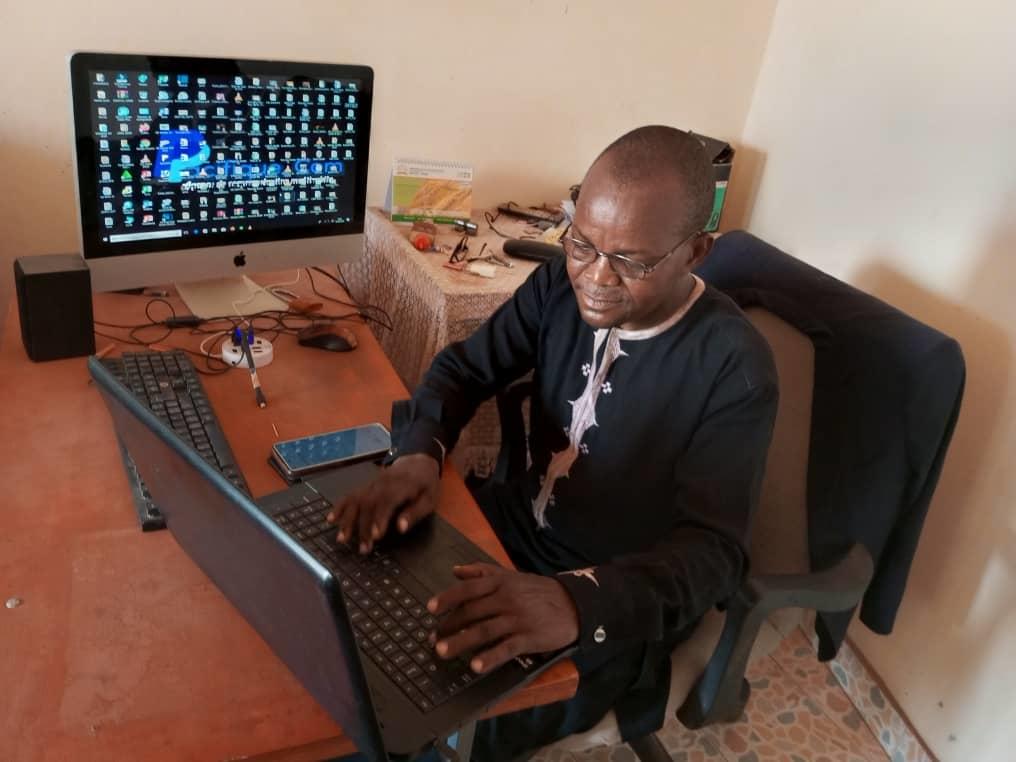Leveraging Digital Platforms to Fight Polio
Known online as “Pacifique,” Seyni Yayé leverages social media to dispel myths and rally his thousands of followers. By partnering with health authorities, he’s proving that digital advocacy can tip the balance against polio.
PACIFIQUE, A WEB INFLUENCER COMMITTED TO THE FIGHT AGAINST POLIO
Seyni Yayé is a trained communicator working as a journalist for a media outlet in Dosso, and he also runs a private communication company. Better known by his Facebook handle “Pacifique”, the married father of four manages a Facebook community of 4.6K subscribers and around 9K followers. Since 2014, he has been assisting the Regional Directorate of Public Health, Population, and Social Affairs of Dosso in promoting health on social media. In 2021, he joined the broad network of influencers engaged in the fight against polio.
“Pacifique’s” commitment is founded on a clear fact:
“Polio exists because I see cases regularly. It’s a disease that can kill. If victims survive, the severe after-effects can leave them disabled. Yet this disease can be prevented by vaccination—people just need to accept it! That’s what drives me to be one of the opinion leaders committed to fighting polio.”
“Visionaries have every reason to use social media to promote health.”
In the digital age, where a predominantly young population is online, the fight against this crippling disease can’t be waged solely through traditional communication channels.
“Things have changed. Previously, the most widely used media channels were radio and television. Now, people use their phones more to get information through social networks rather than traditional channels. A visionary has every reason to use social media to promote health.”
Discussing the start of his collaboration with the health sector, he explains:
“Early on, as a novice journalist, I often shared information without even consulting specialists. The Regional Directorate of Public Health (DRSP) in Dosso had to call me out over one of my posts. Since then, I’ve changed my approach and have gotten closer to the DRSP. I now share on my Facebook page verified, evidence-based information. The trust that was built thereafter led me and the DRSP team to collaborate on digital information and awareness campaigns about diseases or during vaccination campaigns, including the fight against polio.”
“Pacifique’s” collaboration with the Regional Directorate of Public Health provides an opportunity to disseminate credible messages, address online misinformation, and promote practices that help combat polio.
“I also respond to questions raised by my posts within my level of knowledge. When I don’t have an answer, I consult the specialists!”
Regarding persistent misinformation about the polio vaccine, “Pacifique” recommends
“working to open people’s eyes with facts.”
Despite accusations claiming that “Pacifique” is taking money and doing the health authorities’ bidding, he remains focused on his mission: “I’m proud to be useful to my community.”
While acknowledging the many efforts made by partners, “Pacifique” advocates for increased investment to expand the scope of communication because, in his view, “some people still don’t realize the harm that polio can cause.”


Writing Team:
• Raissa Edwige Vanian, Chief of SBC Section
• ABBA Dan Dibi Haroune, SBC Specialist, Niamey
• Pie Roger Bofunga Lohandjola, Stop Team 54, UNICEF Niger
• ADAMOU MOUSSA Hadiza, National Consultant
Photo Credits: ©UNICEF Niger/ Dosso, April 2024/Hadiza ADAMOU

